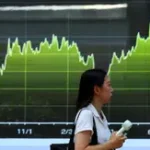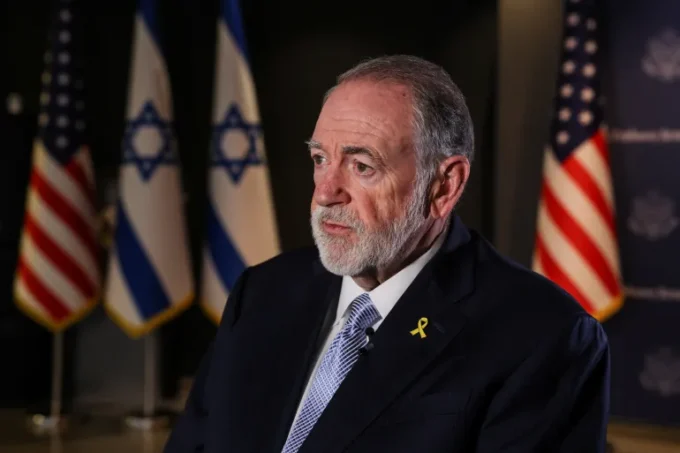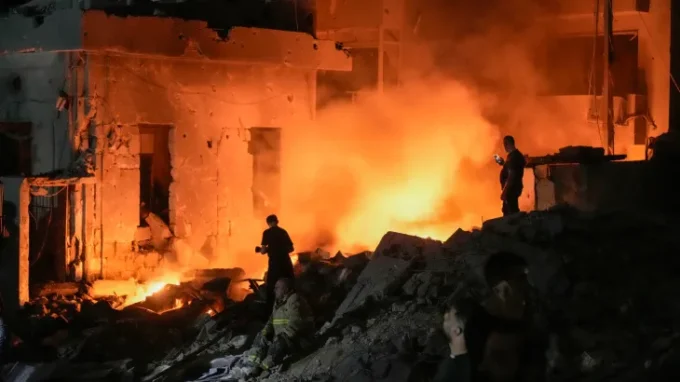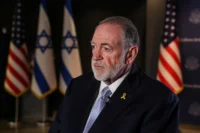They once embraced warmly, exchanged glowing praise, and appeared side by side at stadium-sized rallies—powerful optics for two populist leaders with shared ideologies. Both referred to each other as “good friends.”
NEW DELHI: In India, the relationship between Prime Minister Narendra Modi and U.S. President Donald Trump was often described as extraordinary. But that bond has started to fray in recent months.
Tensions have emerged over several flashpoints—from Trump’s tariff hikes and India’s continued oil imports from Russia to signs of a renewed U.S. engagement with Pakistan. These strains have increasingly played out not in closed-door diplomacy, but in Trump’s pointed posts on social media.
While Trump has avoided naming Modi directly, the shift in tone has raised questions among foreign policy analysts about whether the once-touted camaraderie has cooled. Some warn that the growing friction could threaten the long-standing and strategically vital U.S.-India partnership, which has taken decades to build.
The latest strain in U.S.-India relations surfaced last week when former President Donald Trump announced a 25% tariff on Indian goods, along with an unspecified penalty tied to New Delhi’s continued purchases of Russian oil. As India’s largest trading partner, such a move from Washington is likely to ripple across multiple sectors, triggering economic concerns and a wave of unease in India—especially after Trump went on to describe the Indian economy as “dead” in a social media post.
According to a White House official speaking on condition of anonymity, Trump’s remarks reflect mounting frustration over the sluggish progress of trade negotiations with India. The official emphasized that Trump is not seeking a strategic pivot toward Pakistan but is instead applying maximum pressure in an effort to gain leverage in ongoing talks.
Trump reinforced his stance on Monday with another post on Truth Social, accusing India of purchasing “massive amounts” of oil from Russia and reselling it on the open market for “big profits.”
“They don’t care how many people in Ukraine are being killed by the Russian war machine. Because of this, I will be substantially raising the tariff paid by India to the USA,” Trump declared.
The remarks appear to have struck a nerve with Prime Minister Modi’s administration, which has been actively working to secure a trade agreement with the U.S. by delicately balancing India’s protectionist policies with efforts to open its markets to more American goods.
“Strenuous, uninterrupted, and bipartisan efforts in both capitals over the past 25 years are now being jeopardized—not just by the tariffs, but by reckless statements and social media posts,” said Malik, head of the India chapter of The Asia Group, a U.S.-based advisory firm.
Malik also noted that the trade proposal offered by India to the U.S. is “the most expansive in this country’s history,” referencing reports that New Delhi is prepared to grant limited access to certain American agricultural products. This, he emphasized, is a politically delicate move for Prime Minister Modi, who previously faced a yearlong farmers’ protest over agricultural reforms.
Trump Appears to Tilt Towards Pakistan
While the current tensions may have escalated over tariffs, signs of strain in the U.S.-India relationship have been building for some time—largely due to what many in New Delhi perceive as Trump’s growing closeness to Pakistan, India’s nuclear-armed rival.
In May, India and Pakistan exchanged military strikes following a deadly gun massacre in disputed Kashmir, which India blamed on Pakistan. Islamabad denied any involvement. The four-day flare-up brought the threat of nuclear confrontation into sharp focus, with global intervention ultimately de-escalating the situation.
However, what truly unsettled Modi’s government was Trump’s repeated claims of playing a mediating role in the conflict. His offer to help find a “solution” to the long-standing Kashmir dispute—an issue India has consistently insisted is bilateral—raised eyebrows in New Delhi. Since then, Trump has claimed nearly two dozen times that he brokered peace between the two nations, further fueling unease in Indian diplomatic circles.
Many anticipated a strong rebuttal from India following Trump’s tariff threats, especially given Prime Minister Modi’s carefully cultivated image of assertiveness. However, the initial response was measured. Commerce Minister Piyush Goyal stated that both countries are working toward a “fair, balanced, and mutually beneficial bilateral trade agreement.”
India’s Foreign Ministry initially downplayed any signs of tension, but a sharper response followed late Monday. In a formal statement, the ministry called Trump’s remarks “unjustified and unreasonable,” asserting that India would take “all necessary measures to safeguard its national interests and economic security.”
The statement explained that India turned to Russian oil imports out of necessity, as traditional suppliers redirected shipments to Europe in the wake of the Ukraine conflict, framing the decision as a response to evolving global market dynamics.
It also pointed out the perceived double standards of critics. “It is revealing that the very nations criticizing India are themselves engaged in trade with Russia,” the statement said.











Leave a comment